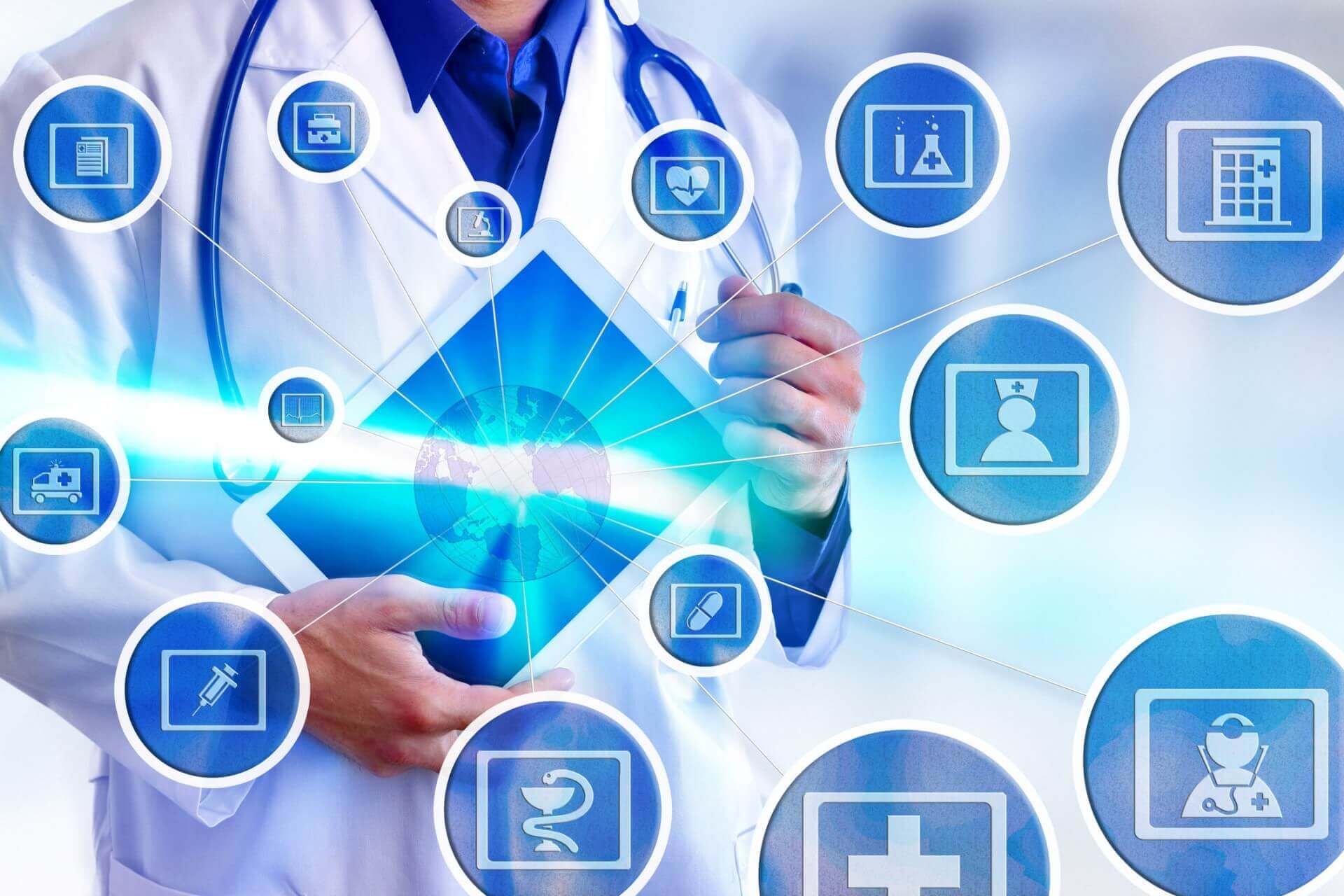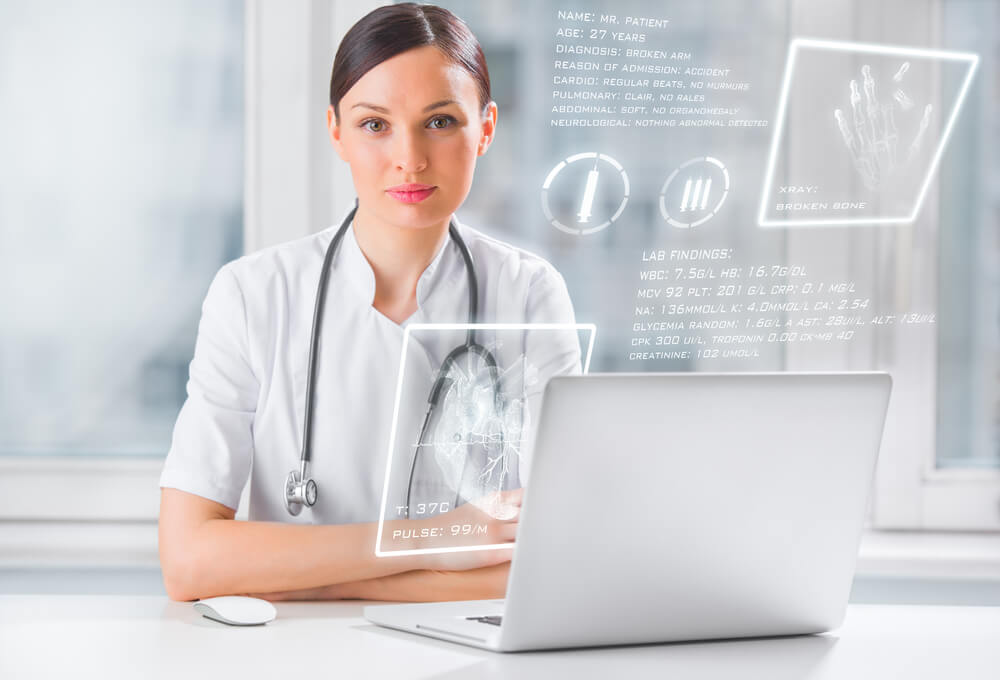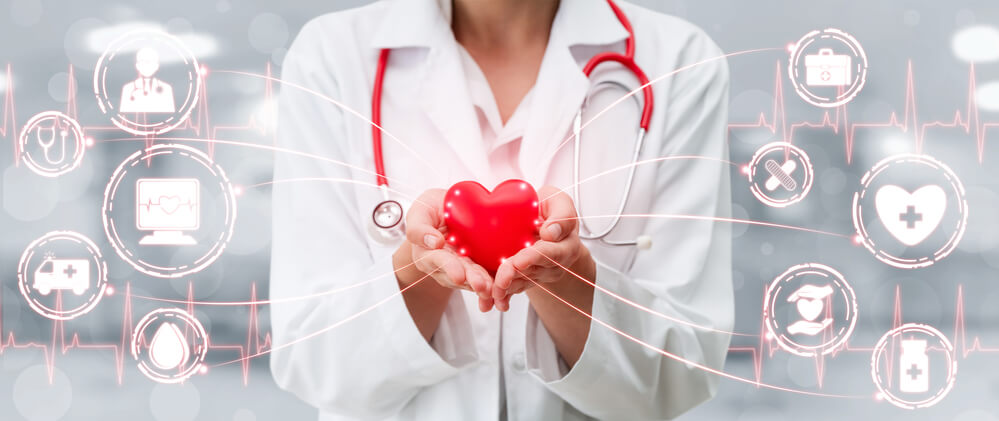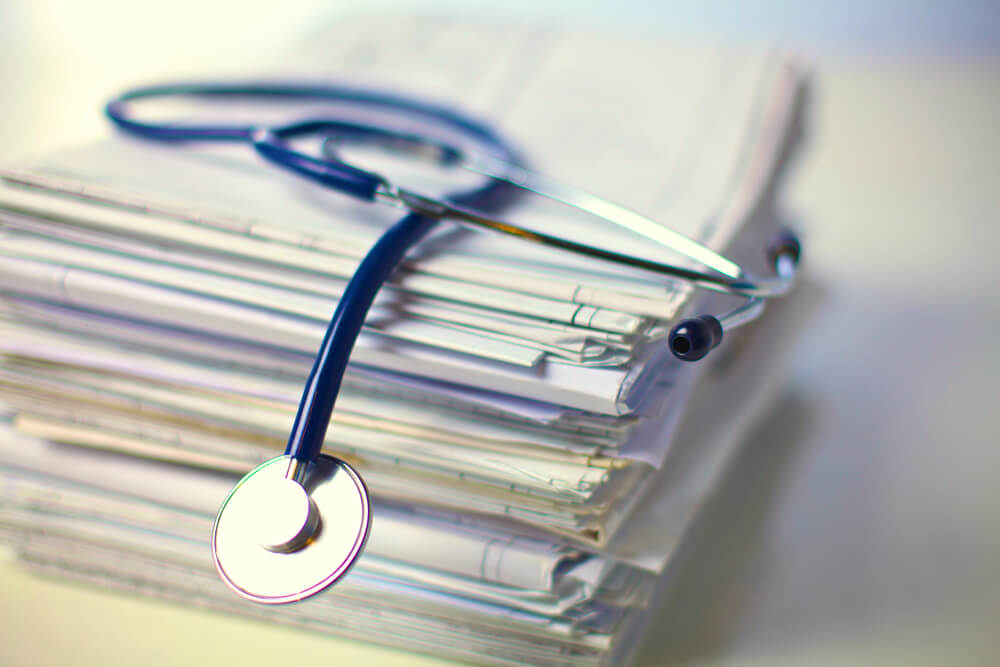Data science in Healthcare: How to change the industry
Specialists are now making use of vast amounts of data to evaluate what works better. The new health data science approach allows applying data analytics that has been aggregating from various fields to boost the health care sector. It is now obvious, the healthcare system is ready for change.
With ERMs, clinical trials, wearable data, and internet research, there is no data processing in healthcare. And with the majority of patients seeking health advice online, and lots of people using tools like Zocdoc to book an appointment, there has never been a more convenient way to centralize data.
STEP-BY-STEP GUIDE ON MOBILE APP HIPAA COMPLIANCE
Fortunately, the health care industry is seizing the chance to upgrade patient care and follow the latest new data science innovations. To assess progress towards universal health coverage, medicine will need a robust health data-driven system. But what exactly can data science and medicine glean from the colossal batches of data points?
Data science can change the health care sector in so many ways. From health tracking to scheduling nursing shifts, data analysis backs up a value-based data-driven approach. This, in turn, allows to optimize the workforce and throughput, improves care recipients’ satisfaction, and balances the supply. On top of this, if you implement the right use of data science in healthcare, medical organizations can greatly reduce costs and re-admissions.
HOW TO INTEGRATE YOUR HEALTH APP WITH EPIC EHR/EMR
All of this makes data science medicine one of the most significant advancements made recently. In this article, we will answer the biggest question ‘how data science is transforming health care’ and have a closer look at hospital data science.

[Source]
The role of a healthcare data scientist
The monstrous quantity of data being produced in studies and medicine are transforming our very perception of the basic biogenic process, clinical decision-making, symptomatic, and treatment decisions. It is shifting the way we approach population health in general. A data scientist in healthcare plays a huge role in data management.
By crunching numbers, data scientists in healthcare are exploring opportunities to predict drug behavior and better understand human disease. Data science in healthcare is the key feature of how we approach and use the medicine. Big data hype puts a health data scientist in a prime position. The term ‘data scientist healthcare’ was first used in 2008.
Healthcare Mobile Apps Development: Types, Examples, And Features
A medical data scientist can take the data of any size and start developing, implementing, and deploying AI power. Healthcare data scientists use advanced statistical methods to do analytics and get meaningful insights from the data.
In general, the position of a healthcare data scientist entails the following responsibilities:
- Collaborating with stakeholders to define the goals and the type of statistics needed
- Accessing, updating, inserting, and manipulating large volumes of data
- Organizing and coordinating patient data files
- A hospital healthcare data scientist is the cleaning and managing data to meet the company’s purpose
- A public health data scientist is contributing to Public Health Datasets
- Performing information base audits
- Healthcare data scientists are carrying out data analytics for apps
- Coordinating with different dev teams to implement models and monitor outcomes
Since we have answered ‘what is the role of data analytics in healthcare’, let us give insights into how data science and healthcare can become mutually beneficial.

[Source]
Top 5 Data Science Applications in Healthcare
There are countless big data use cases in healthcare that are opening doors for future development in medicine. From drug discovery to Python uses in healthcare, healthcare big data use cases are rapidly occupying the healthcare industry.
Data Management & Data Governance in Healthcare Industry
The opportunity for better data management is enormous. Moving towards better use of open standards, and better data sharing at the top level provides actionable insights about the Health Service operation. Machine learning will enable doctors to be more human and deliver better care. Data management is all about making information easily accessible to people who work in the healthcare industry.
As the health industry’s nature is risk-entailing, data crunching has to be ultra-careful to assess the current situation and possible outcomes. Moreover, data analytics for healthcare should remain up-to-date, complete, and profound.
Related readings:
Calmerry Online Therapy Platform
Orb Health – Сare Management As A Virtual Service
BuenoPR – 360° Approach to Health

Data science for healthcare facilitates the process:
- All medical records can be combined into one dataset (electronic health records), put away in the information distribution center, and effortlessly utilized for resulting model preparation and testing
- All data can be digitized, collected, and shared over various sets of data and systematized, eliminating excessive office work
- Extra sources and further analysis can help pinpoint and handle the disparity in clinical data
- Cloud-based clinical software offers accessibility options and accelerates the process of historical data handling. It means saving time when deciding on the therapy or receiving lab results
- Collecting and saving patient health information in internal and public health datasets enables medical staff to track conditions over time
- Machine learning helps gather insights from accessible evidence, such as simplifying the process of drug discovery
While data governance is recognized as a healthcare imperative, opportunities exist for healthcare organizations to hasten the prioritization of data governance as a business imperative. The term encompasses rules, policies, procedures, roles, and responsibilities for managing the lifecycle of data.
What solutions can we offer?
Find Out MoreIn its essence, data governance provides guidance to ensure that data is accurate, consistent, complete, available, and secure. It is also a key enabler in improving value and trust in information and achieving efficiencies and cost savings. Data governance plays a crucial role in patient engagement, care coordination, and community health. Without it, the data will be released inconsistently by different healthcare data science companies.
This, in turn, will lead to the perception of poor data quality. Therefore, healthcare data science apps ensure a more effective security approach and a more profound analysis of the system.
Workflow Optimization and Process Improvements
It’s a little-known fact that many big decisions are made with human ‘gut instinct’, as there’s little big data analytics in healthcare. Medical data science allows developing a personalized healthcare approach and helps healthcare organizations allocate time and workload more efficiently.
Here’s how data science in healthcare improves the workflow:
- Information bases and distributed computing features can radically abbreviate the time required for the activity and increment the test outcomes’ precision
- Less time and exact test outcomes lead to work process effectiveness development
- Essentially, clinical staff get an opportunity to perform more tasks within a limited time span
- Better effectiveness prompts higher recuperation rates, faster crisis reaction, and, above all, less deadly results because of sepsis and different elements that require a quick response
- Health care recipients get digital interaction that is patient-centered
In addition to that, data science tools facilitate a superior structure to the human services framework’s general improvement. Each test, examination, guess, and treatment includes another case for data science algorithms (machine learning), fortifying the worldwide social insurance framework’s logical limits.

Medical Image Analysis
Medical imaging refers to the process of creating a visual representation of the body for clinical analysis and medical intervention. It offers a non-invasive way for doctors to look inside the human body, or model organs prior to a procedure. With the rapid growth of healthcare and artificial intelligence, applications of data science in healthcare can play a key role in creating new opportunities for treatment and care. Among the various types of medical imaging is tomography or longitudinal tomography.
Its main methods are X-ray computer tomography (CT), PET, and MRI. Anyway, how data is science transforming healthcare in the given area? Well, medical images require accurate images with subsequent meticulous interpretation. Data analysis refines image analysis by enhancing such characteristics as:
- Modality difference
- Image size
- Resolution
Supervised and unsupervised learning eases medical imaging by offering computational capabilities that process images with greater speed and accuracy, at scale. An excellent example of computer science power is a cancer detention case study that used CNN to diagnose melanoma.
The data sets, and their vast libraries, are the cornerstones of the examination. Entering data is contrasted with the accessible datasets, and the gathered bits of knowledge give a superior comprehension of the patients’ diagnosis.
Genetics/Genomics – Treatment personalization
When new technologies come along, whether it be various forms of genomic profiling sequencing or something else, this provides a new look at the genomics world. With huge genetic data amounts today, genetics data is now produced faster than it can be organized or implemented.
Part of this is because the methods for structuring data lag dramatically behind developing the ability to get data. Healthcare data science is a good thing, but you have to be able to make sense of it.
The challenges in the genomics area include the following:
- Studying human genetic variation and its effect on patients
- Identifying genetic risk factors for drug response
Thus, DNA Nanopore Sequencer is a tool that helps patients before they suffer from septic shock. It offers genetic sequence mapping, which abbreviates the time span of the information preparing activity. Additionally, the tool recovers genomic information, BAM document controls, and gives calculations.

Predictive Analytics in Healthcare Sector
Essentially, predictive analytics is a technology that learns from experience (data) to foresee a patient’s future behavior. It helps connect health care data science to effective action by drawing reliable conclusions about current and future events. And it allows healthcare to use predictive models to use models found in data science health. This, in turn, makes it possible to identify potential risks and opportunities before they occur.
However, here are some barriers to predictive analytics use. They include the following points:
- Lack of seamless healthcare information exchange among healthcare systems and staff
- Shortage of skilled workers to fill knowledge gaps
The following types of databases are required to eliminate these hurdles and facilitate the use of predictive analysis:
- Medical records
- Ongoing condition stats of patients
- Medication databases (mental health)
- Genetic research and other uses
Combined, data retrieval and deep learning can skyrocket the process:
- Data Mining techniques pull out usable data from large batches of data
- The illustrative, exploratory, and comparative calculations can combine numerous viewpoints into one and figure the best option for patients

In general, this type of healthcare analytics can:
- Provide fast and accurate insights to utilize risk scores
- Improve operational efficiency
- Outbreak prediction
- Control patient deterioration
- Reduce costs from eliminating waste and fraud
- Predict insurance product costs by applying data science in health insurance
Therefore, thanks to accurate predictions, patients have the possible benefit of better outcomes. At the same time, it will also allow the healthcare sector to build forecasting models that do not need lots of instances.
Predictive Analytics & Health Data Science
The healthcare industry is evolving at lightning speed. Its main focus is predictive analytics, creating enormous opportunities to improve patient outcomes and reduce costs. Predictive analytics uses past data to model future results. It will likely help identify patients who are at the highest risk of poor health outcomes. It can also help in delivering personalized care through remote patient monitoring.
THE APP SOLUTIONS – CUSTOM HEALTHCARE SOFTWARE DEVELOPMENT COMPANY
Clinicians can target these care recipients with customized health plans to avoid hospitalization and re-admissions. Specialists can leverage innovation like big data analytics, machine learning algorithms, and natural language processing, to draw useful conclusions for disease research. This, in turn, will allow patients to participate in their own care.
At the very least, this type of analytics can help clinicians anticipate problems prior to developing and mitigating health issues before they worsen. When you combine predictive analytics and big data, it proves to be a key competitive advantage for organizations today.
Ready to apply data science in your healthcare organization?
Receive a project cost estimation